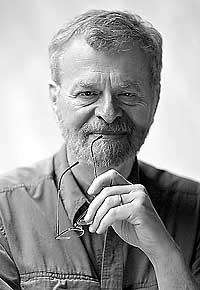Bill DeSmedt
William H. DeSmedt is an American author of science fiction. His debut novel, Singularity (2004), explores the 1908 Tunguska event and the speculative hypothesis that it was caused by a submicroscopic, primordial black hole. Although Singularity is a work of science fiction, in the tradition of Michael Crichton, its premise is anchored in real-world science.
Bill DeSmedt | |
|---|---|
 | |
| Occupation | Knowledge Engineer, Novelist |
| Genre | Action/Thriller/Science fiction |
| Website | |
| www | |
In penning Singularity, Bill also drew on a deep knowledge of the Russian language, politics and culture, first acquired during eighteen months at the Defense Language Institute in Monterey, California, and added to while a US–USSR exchange student at Moscow State University. He also holds a Master of Arts (M.A.) in Soviet Area Studies, and a Master of Science (M.S.) in Computer Science.
Fiction
| Year | Cover | Title | Notes |
|---|---|---|---|
| 2004 | Singularity | 512 pages; Hardcover, Per Aspera Press (ISBN 0-9745734-4-2) | |
| 2005 | Singularity | Podcast version read by author, Podiobooks.com | |
| 2010 | Dualism | Sequel to Singularity |
Awards
- Foreword Magazine Book of the Year Awards: Winner – Gold Medal for Science Fiction, 2005 (Singularity)
- Independent Publishers Association: Winner – Ippy prize for Best Fantasy/Science Fiction novel, 2004 (Singularity)
- Publishers Marketing Association: Finalist – Ben Franklin “Best New Voice” Award, 2005 (Singularity)
Scientific concepts
In his debut novel, Singularity (2004), discusses the long-disparaged hypothesis that the devastation of the Tunguska basin in 1908 was caused by a submicroscopic, primordial black hole.